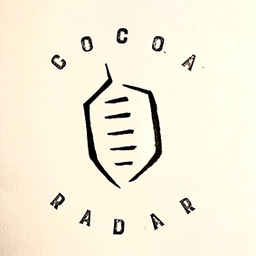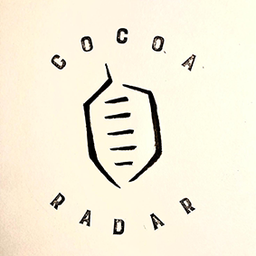A combination of factors has led to a decline in production from West Africa, pushing cocoa prices to record levels in 2024. Cote d’Ivoire and Ghana historically produce almost 70% of the world’s cocoa supply, which means less supply in these countries impacts the world market demand for cocoa and, therefore, pricing.
Fairtrade International told this website that the cocoa sector has been experiencing a convergence of crises in the last decade. Farmers have been dealing with aging cocoa trees, plant disease, and fluctuating and extreme weather patterns (also due to climate change), along with years of chronic underinvestment that has led to a decline in productivity, especially in West Africa.
“This, combined with the impact of global inflation on the cost of production and living, has forced many farmers to live in poverty or, in some cases, extreme poverty,” it says in a statement.
Still, critics claim that Fairtrade’s benefits are often skewed toward larger, more organised producer cooperatives, sidelining small-scale farmers who lack the resources to participate.
While Fairtrade maintains that working with small-scale producer organisations (SPOs) is central to its approach of aiming to improve the livelihoods of cocoa farmers, Fairtrade International acknowledged earlier this year in a consultancy document that the inability of SPOs to sustain growth in Fairtrade sales reflected “a very large oversupply of Fairtrade cocoa and a decline in demand following the 2019 increases in the Fairtrade Minimum Price and Premium.”
The Fairtrade Model
Fairtrade certification revolves around several key principles:
- Minimum Price Guarantee: Producers receive a stable, minimum price to cover sustainable production costs, protecting them from market volatility
- Fairtrade Premium: An additional sum is paid to communities for development projects like schools, healthcare, and infrastructure
- Labour Rights: Ensuring decent working conditions, freedom from forced or child labour, and gender equality
- Environmental Sustainability: Encouraging eco-friendly practices and limiting the use of harmful chemicals
The document, seen by cocoaradar.com, acknowledges that Fairtrade Africa (FTA) has increased support for the SPOs and provided greater skills and confidence in accessing Fairtrade markets. It also highlighted that Fairtrade sales rebounded in 2021 and maintained approximately the same volume globally. But in 2022, the highest ever Fairtrade Minimum Price differential in Cote d’Ivoire led to decreased volumes sold from that country.
Since 2022, the demand for conventional cocoa [i.e., uncertified] has been higher than the supply. Fairtrade International also says that the global shortage in conventional cocoa may have impacted SPOs' ability to demand their cocoa purchased on Fairtrade terms, releasing the Fairtrade Premium, as buyers must secure any available cocoa during a short supply.
Despite these inflection points, the Fairtrade market continues to grow with new commitments from brands and retailers. Fairtrade also plays a critical role for cooperatives. Fairtrade Standards create a level playing field for all actors along the value chain to ensure that cocoa is produced and traded under ethical and sustainable conditions.
Alternative cocoa certifications
However, Fairtrade is also experiencing pressure from other areas, notably competing ethical certifications, such as Rainforest Alliance and UTZ. These sometimes need clarification among consumers and dilute the Fairtrade message. Many of the large chocolate companies also operate independent in-house certification schemes along with the Fairtrade mark, muddying the water further in the eyes of the general public.
This leads to another worrying trend, which is consumers are eschewing these labels altogether when looking at the provenance of a chocolate bar and are going beyond certification directly to the origin of the product by scanning QR codes on packaging, for example.
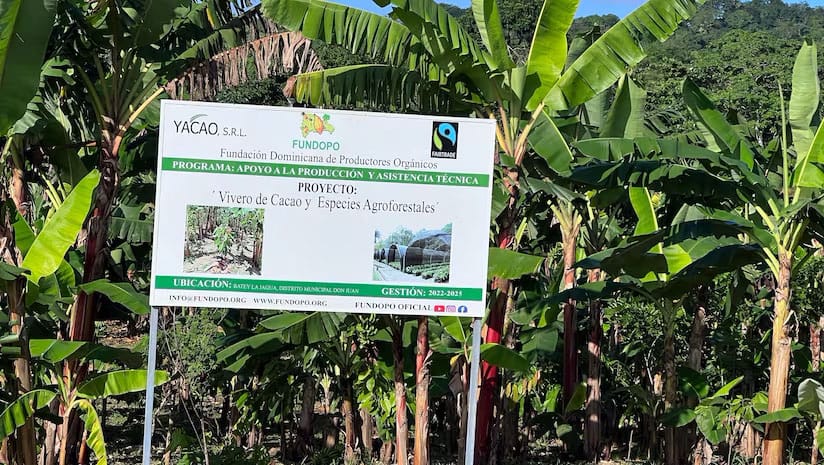
Swiss organic cocoa supplier Pronatec is fully certified under several sustainability standards and is particularly proud of its Fairtrade certification. Still, in its most recent sustainability report, as this publication highlighted, in the past year, Pronatec reported that there has been a drop in Fairtrade premiums due to poor harvests and declining sales of Fairtrade-certified goods.
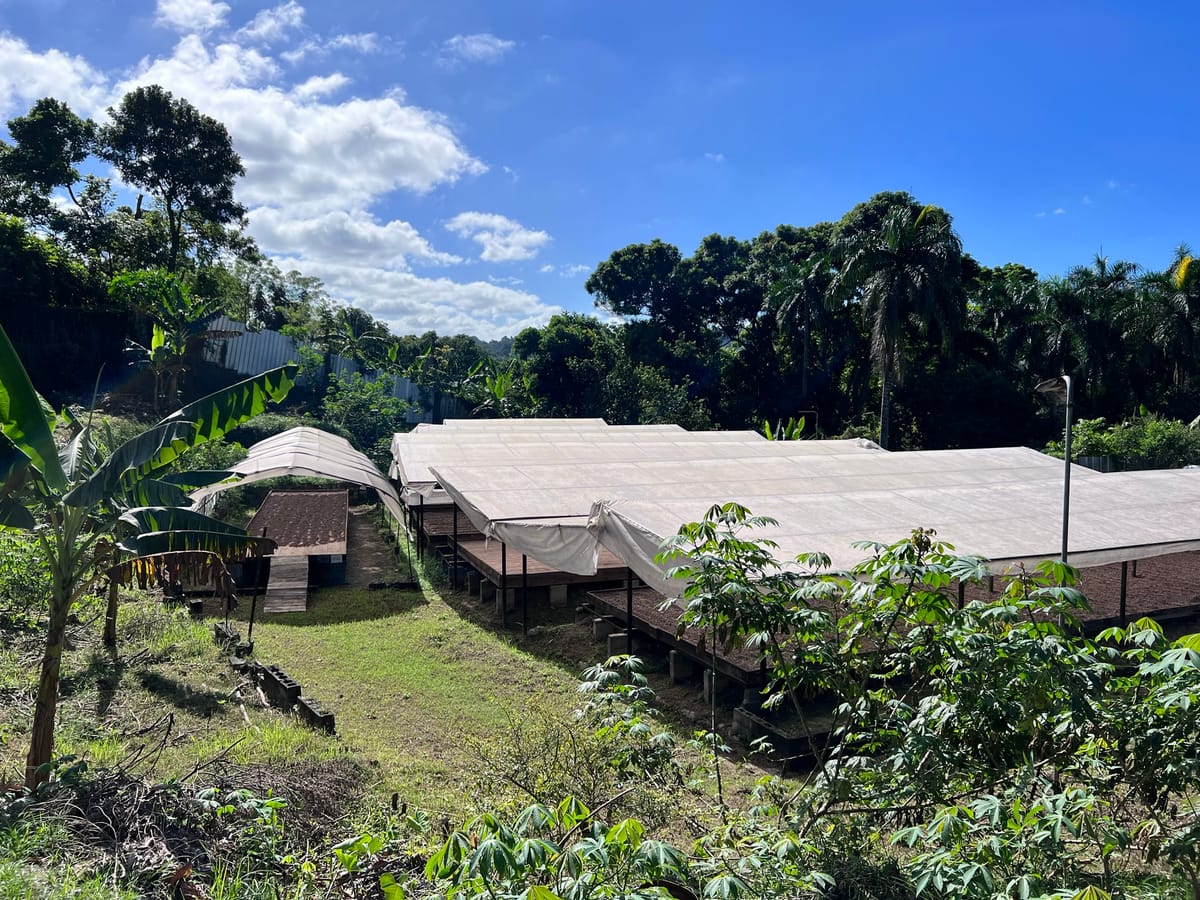
Pronatec says its certified organic goods can be purchased with or without Fairtrade certification. The report reveals that after years of constant growth, the proportion of Fairtrade-certified goods has declined over the past year.
The latest figures from the company show that sales without Fairtrade certification reached 53% of sales in 2023 (as opposed to only 32% in 2021).
“On the one hand, this is due to poor harvests at several Fairtrade suppliers, mostly in cocoa. On the other, there has been a comparatively low demand on the market.”
It says that some of its customers will buy Fairtrade-certified ingredients out of principle, while others do so because they must produce the required ‘label products’ for their customers.
Another group of customers opposes the official Fairtrade standards but still buys Fairtrade-certified products or pays higher prices to support this good cause because this corresponds to their ethical standards.
Others, however, buy goods without Fairtrade certifications while asking Pronatec to confirm compliance with Fairtrade standards through lengthy (and time-consuming) questionaries.
“This stands in stark contrast to the low prices they are willing to pay, which do not allow for a truly fair’ trade worth the term,” according to Pronatec.
“In the current economic situation, with the overall price increase and political insecurity, the most committed brands (often the rather expensive ones) are the ones most under pressure.”
The company mainly deals in organic cocoa sourced from farmers in the Dominican Republic and says its influence on this trend is very limited. “However, Pronatec will strengthen its Fairtrade certified suppliers and help all direct suppliers comply with the increasingly complex certifications, quality requirements, and global trade regulations, such as the EU Deforestation Regulation.”
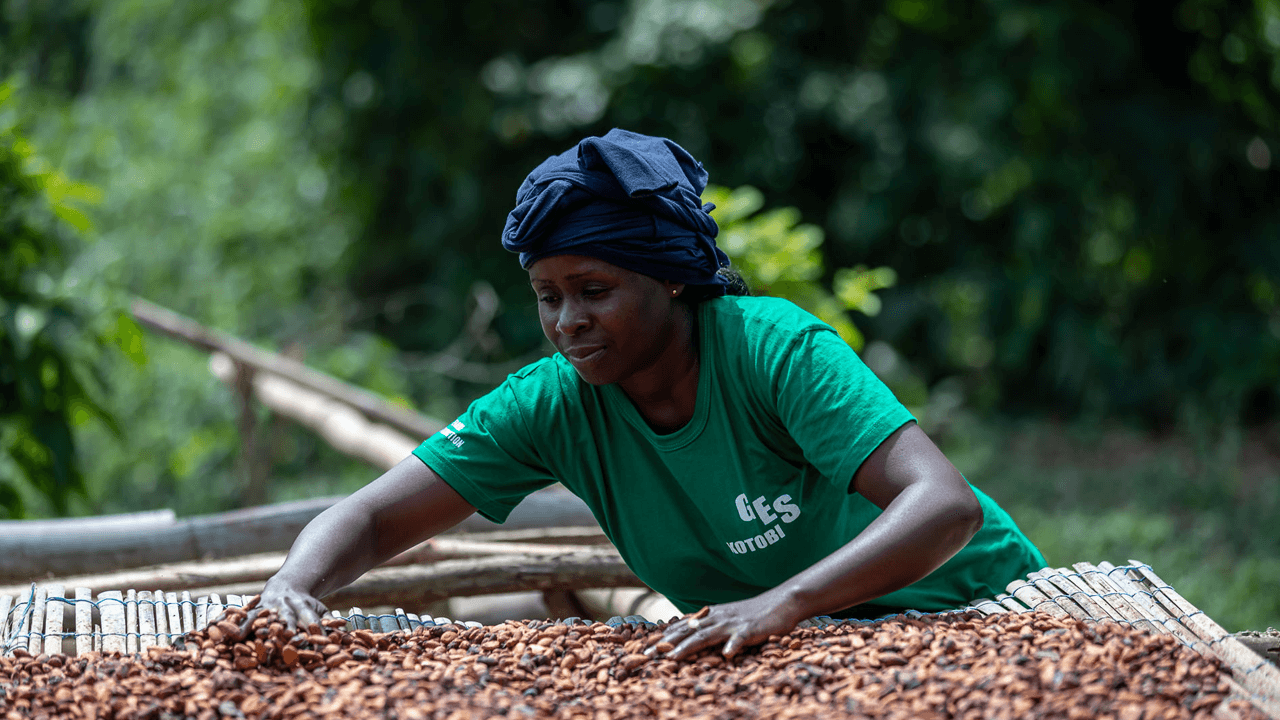
Responding to these concerns, a spokesperson for Fairtrade International told cocoaradar.com: “There is an unprecedented supply crisis in the cocoa sector whose impact has driven prices to historical highs and pressurised global sales due to low availability.
“In addition, new EU regulation has applied additional pressure to supply constraints, leading to increased costs for producers and companies in ways that are not yet fully known/predictable. It is uncertain when this supply crisis will be resolved. During these uncertain times, Fairtrade global cocoa sales have remained relatively stable."
“It is still unclear whether the current price trend will continue or if, in time, supply will recover, leading to oversupply pushing down prices. Moreover, new regulations in Europe, such as those on deforestation and corporate due diligence, while necessary for sustainability, will increase costs for producers and companies in ways that still need to be fully known.
“The Fairtrade Premium provides vital funds directly to farmer cooperatives so they can provide adequate service to their members, for instance, by reinvesting in productivity improvements, diversification initiatives, and community projects. This non-negotiable premium helps farmers invest in long-term development.
“Fairtrade Minimum Price provides a safety net when the market crashes and is a mandatory minimum price for cocoa sold on Fairtrade terms.”
In the past Fairtrade has run campaigns like ‘She Deserves’ highlighting the hidden inequality experienced by the women and girls behind the multibillion global chocolate industry.
In 2020 it revealed that in West Africa, where most of the world’s cocoa is grown, the average woman cocoa farmer earns as little as 23p a day.
Journalist and human rights activist Fernando Morales-de la Cruz has been a consistent and vocal critic of the cocoa and coffee industry. He says in a recent LinkedIn post: “Corporations, small businesses, NGOs, and even churches using the ‘Fairtrade’ and ‘Rainforest Alliance’ systems have never paid a fair price to coffee, tea or cocoa growers.
“There is misery, hunger, infant malnutrition and child labour in the supply chains of products certified by Fairtrade and Rainforest Alliance ... both organizations deceive consumers with false advertising and deceitful marketing.”
Is Fairtrade suffering a crisis?
Not quite, Fairtrade certification remains a cornerstone of the ethical trade movement, but its future depends on adapting to evolving market dynamics and consumer expectations.
As global awareness of ethical consumption grows, Fairtrade must continue to address its challenges while upholding its foundational principles. Trust, after all, is not just a cornerstone of the Fairtrade movement—it is its very currency.
Fairtrade can also find succour in that brand awareness and sales remain strong in important markets like the UK.
Fairtrade UK’s latest sales show 41% more Fairtrade confectionery was sold during Fairtrade Fortnight compared to the previous two weeks, ranking higher than total confectionery sales, which saw a 10% uplift.
Outgoing CEO of the Fairtrade Foundation, Michael Gidney, says: “We are delighted to see sales of Fairtrade products outperforming the market this Fairtrade Fortnight. This shows the unstinting support for Fairtrade from the British public even when times are tough, and it also shows how stocking a range of Fairtrade products makes good business sense. More and more people are choosing Fairtrade when they shop, recognising the importance of contributing to building better livelihoods for farmers and workers overseas who produce many of the goods on supermarket shelves.”
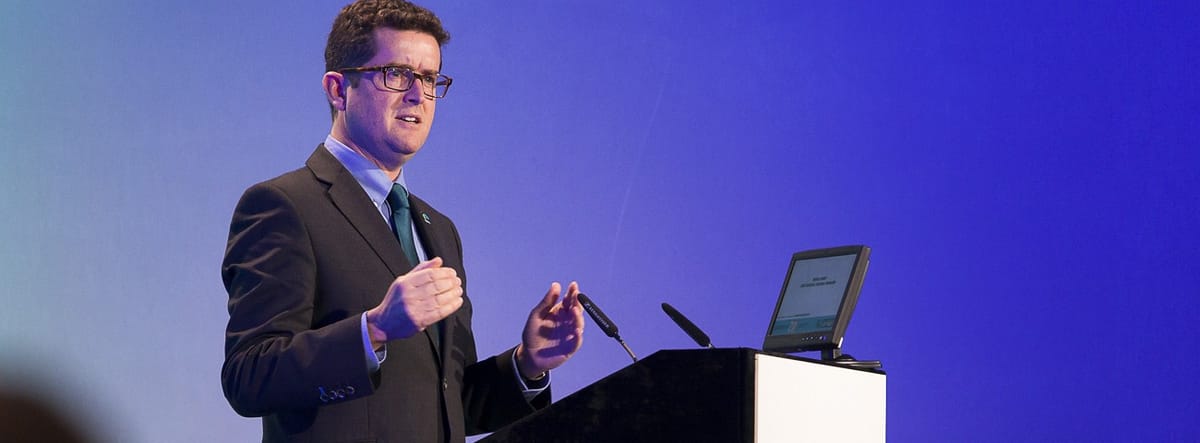
Fairtrade UK, which celebrates its 30th anniversary this year, also points to the fact that according to research by Globescan, consumer demand remains very strong with the Fairtrade Mark and is the most recognised and trusted ethical label in the UK, with 92% awareness and 88% trust among those who recall seeing the Mark. Seven in 10 UK adults also bought a Fairtrade product last year.
Support grows for Fairtrade in US
And in the US market, recognition for Fairtrade-backed chocolates and other products is actually growing.
Fairtrade Farmer cooperative-owned Divine Chocolate is increasing its footprint in the US, especially with a new partnership launched earlier this year with Euro-American Brands.
“The partnership means brand awareness is certainly growing in the States … since Covid consumers are becoming more conscious of how they spend their money. It's been a benefit to Divine because of what the brand represents regarding farmer ownership, and the brand is moving in the right direction regarding what consumers are seeking and looking for now, Troy Pearley, Divine Chocolate’s North America General Manager, told ConfectioneryNews in May.
While there is compelling evidence that consumers, by purchasing Fairtrade-certified products, directly contribute to its sustainability objectives, the organisation itself is only too aware, the system relies heavily on the transparency and credibility of the certification process to maintain consumer trust.
How it maintains that trust and credibility in the face of competition, consumer spending habits and rampant increases in the price of cocoa and other raw materials remains to be seen.
The Origins of Fairtrade Certification
The roots of the Fairtrade movement trace back to the mid-20th century when alternative trade organizations began to emerge as a response to the perceived exploitation of farmers and artisans in developing countries. Key milestones in its history include:
1. 1940s–1970s: Early Movements
• Post-World War II, religious and non-governmental organizations started promoting “trade, not aid,” advocating for fair prices and direct trade relationships with producers.
• Organizations like Ten Thousand Villages and Oxfam began selling handcrafted goods directly sourced from artisans in the Global South.
2. 1980s: Institutionalizing Fair Trade
• The first Fairtrade label, Max Havelaar, was introduced in the Netherlands in 1988. It certified coffee producers meeting specific ethical standards, including fair wages and environmentally sustainable practices.
• This model inspired similar initiatives across Europe, leading to the creation of regional Fairtrade organizations.
3. 1997: Establishment of Fairtrade International (FLO)
• To streamline certification and set global standards, Fairtrade International was established. It unified various regional initiatives under one umbrella, promoting the recognizable Fairtrade Mark.
4. 2000s–Present: Growth and Diversification
• The Fairtrade Mark expanded to cover a wide range of products, including tea, chocolate, bananas, and textiles.
• The certification became a global movement, with producers from over 70 countries and markets in more than 125 nations.


